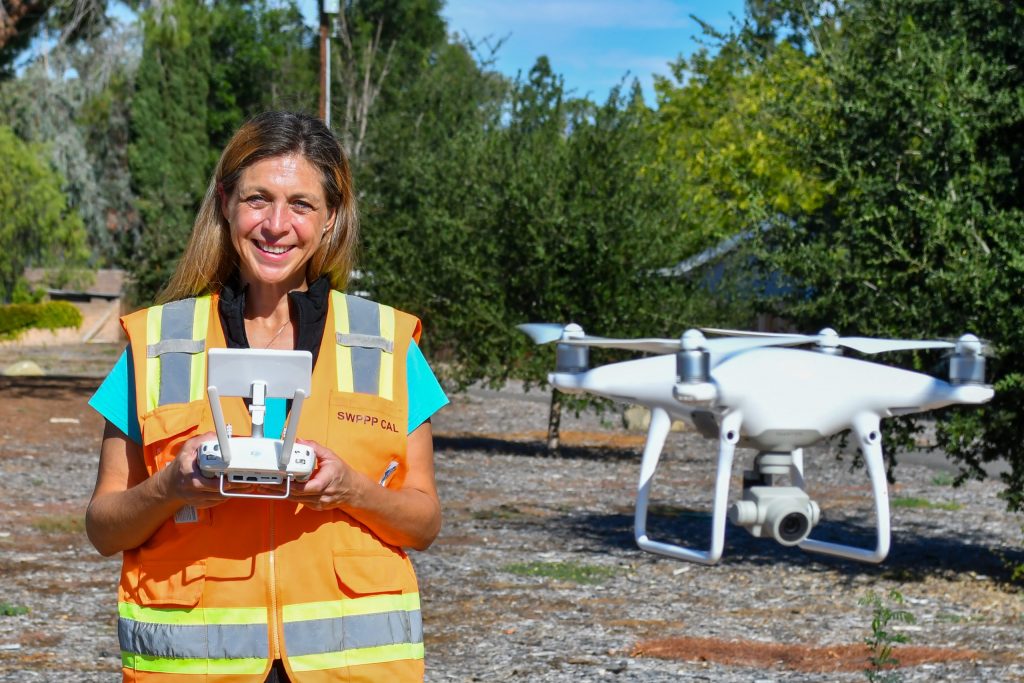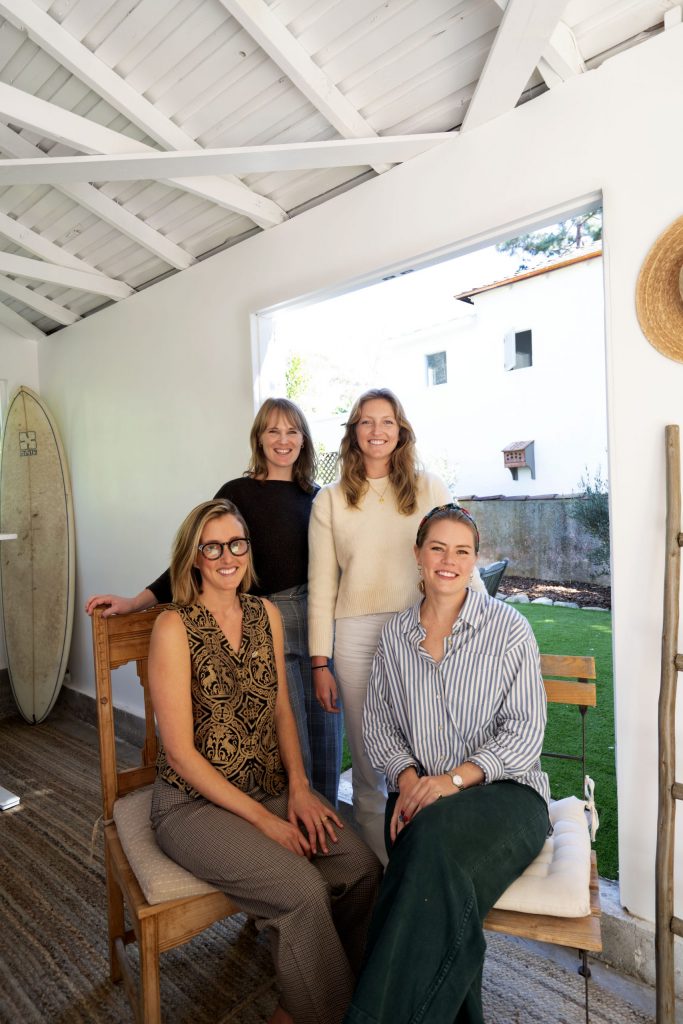Women-founded companies are breaking the mold on the Central Coast
IN THIS ARTICLE
- Central Coast Topic
- Jorge Mercado Author
By Jorge Mercado Tuesday, January 16th, 2024

Growing up, Blanca Hoffmeir loved aviation. As an adult, she became an engineer and worked her way up from a small company to a larger one.
The larger company used drones for surveying purposes and, because she had her private pilot license, Hoffmeir was asked to be onboarded as a drone pilot to provide services on that side of the business.
But despite being asked, she noticed she was being used less than her male counterparts. So, in 2015 she left that company and started her own with a single client. Now eight years later, she and her business, SWPPP Cal, are thriving and growing.
“I remember I was discouraged. It was 2015, yet that mentality that women can’t do as much was still there. But still, it encouraged me that we needed to keep plowing forward and creating our own path,” Hoffmeir told the Business Times on Jan. 10.
Hoffmeir’s story of being undervalued isn’t uncommon for women. Women have historically struggled to be taken seriously in the workforce, but since the start of the pandemic, women’s entrepreneurship has been on the rise — nationally and locally.
Statistics from Gusto’s, an HR company, 2020 survey found that women made up nearly half – 47% — of new business owners, up from 29% in 2019 using comparable pre-pandemic estimates from the U.S. Census.
This increased rate of entrepreneurship among women has continued three years on, with women making up 49% of new business owners in 2021 and 47% in 2022.
Those numbers are also translating at a local level. The Women’s Economic Venture, a business management consultant firm for women business leaders in Santa Barbara and Ventura counties, found that clients that have started up businesses have doubled since 2019.
In 2019, there were 24 women-founded startups, by 2021, there were 50. That number has steadily continued increasing, with 54 and 55 women-founded startups in 2022 and 2023, respectively.
“The growth in women-owned businesses is very promising for the health of our economy. Women entrepreneurs bring diverse perspectives, experiences and new ideas to the business world,” Kathy Odell, CEO of WEV, told the Business Times.
That trend also isn’t expected to stop in 2024.
“The latest economic global research from Bank of America economists indicate steadying interest rates, lower inflation and a “soft landing” economic outlook that may give female entrepreneurs more confidence that 2024 is the year to launch their new venture,” Kristi Alameda, SVP Small Business Banking Manager, Bank of America, told the Business Times.
One of the women-founded companies that started out of the pandemic is Santa Barbara-based Beni, a free-to-use browser extension meant to amplify secondhand shopping efforts.

Sarah Pinner, CEO and founder of the company told the Business Times she likely wouldn’t have started the company if not for the pandemic. But since starting it, she and her team have seen success, raising over $5 million, growing their product to have over 40,000 users and partnering with over 40 companies.
“We are very focused on growth,” she said.
“Last year, our word was ‘blossom’ and building out the foundation of our company… now we want to get as many people as possible experiencing the magic of resale.”
This translates with Bank of America’s most recent Women & Minority Small Business Owner Spotlight, which indicates that women business owners continue to report an overall positive outlook, with 63% expecting revenue growth and 45% planning to expand their business over the next 12 months.
Additionally, 74% of women business owners plan to obtain funding. Pinner said the company will look to raise again likely in 2025.
Pinner noted that being a women entrepreneur in the climate technology and fashion space actually put her alongside more women, so she’s “had a bit of a skewed experience” because she has been surrounded by women – on both the investor and founder side – since the start.
Still, even she notices slight nuances in how she is treated in the boardroom compared to her male counterparts.
“Being a female-founded company, we have this perspective of being surrounded by women but we still see the stats that most of the funding that comes goes toward men,” she said, citing PitchBook studies that show 2% of all venture capital goes to female-founded companies.
While speaking at a panel at UC Berkeley, she also recalled stories of asking for funding and how the questions she received were different than those addressed to her male counterparts.
She would often be asked about losses – which would put her on the defensive – while men were often asked about their vision for the company.
“Very few people knew of that reality because it is a sort of less blatant sexism,” Pinner said.
She also noted that when she leads her pitches by talking about the AI used by Beni and the technology the team utilizes, there tends to be more skepticism, even amongst women.
She recalls one female investor noting, “You guys can actually build great tech and not just in this because you want to shop.”
“That is what people are going to assume and so recognizing that is the water we swim in and navigating within that is smart,” Pinner said.
Hoffmeir can relate. She noted that when she first started her business and walked around with her drones, people often asked if her husband could help them with their problem, not assuming she was the business owner.
She is also a small minority of drone pilots who are women; only 8% of certified drone pilots nationally are female.
Still, that never stopped her ambition.
“When I first thought about starting this business, I only saw one female engineer who had started her own engineering company here in Ventura. I never saw a group of females, let alone a single woman, start their own business,” Hoffmeir recalled.
“That was my inspiration to know this was doable.”
Today, SWPPP Cal, short for Stormwater Pollution Prevention Plan California, has six full-time employees and 20 active projects. The company was also recognized as WEV’s 2023 Client of the Year.
Recently, SWPPP Cal also received its contractor’s license, allowing it to implement any erosion control on sites that may need it and add yet another vertical to its growing company.
“Everyone I run into — especially females, it doesn’t matter their age, I started when I was 43 — I tell them to start their own company. If they have an idea, just start it up,” Hoffmeir said.
email: [email protected]









